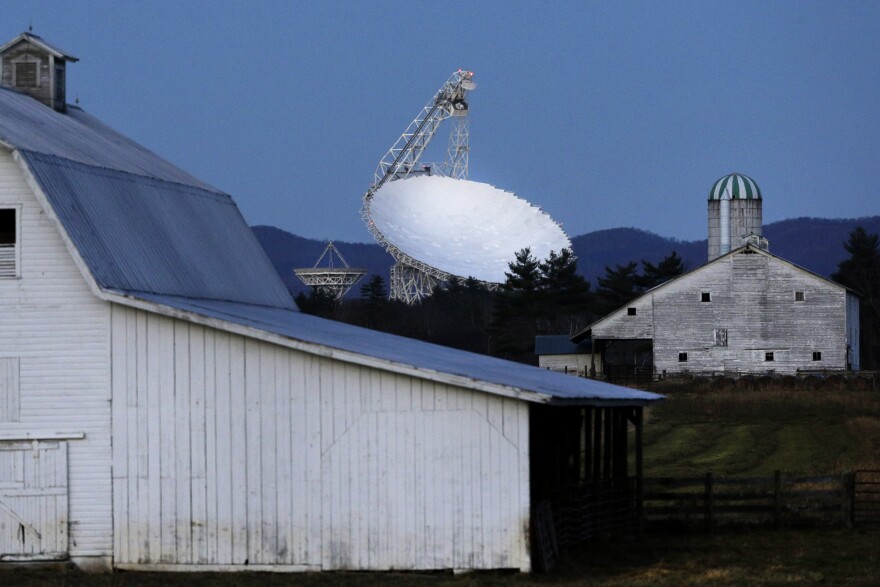What could a robot lawn mower possibly have to do with astronomy? A lot, apparently.
iRobot, which makes Roomba, the wireless vacuum cleaner, appears to be developing a robot lawn mower – one that would work using a wireless beacon system. That's according to a waiver filing in February with the Federal Communications Commission.
Wired, where we spotted this story, has the details:
"The problem with grass-cutting bots, according to iRobot's filing, is the only way to get them to work is to dig a trench along the perimeter of a lawn and install a wire that creates the electronic fence needed to ensure the automaton don't wander beyond the property line.
"As a less arduous solution, iRobot proposes using stakes, driven into the ground, to act as beacons. The beacons will talk to the lawnbot, helping it map the area and stay within the designated boundaries. A typical user with a typical lawn (a quarter to a third of an acre) might need between four and nine beacons."
But it turns out that the frequency range in which this lawn mower would work was also used by astronomers for spectral line observations. That's why iRobot applied for a waiver. The filing says:
"Because this use is location specific, there is little risk of interference as homeowners will not be operating the RLMs near observatories, especially those located in desert or mountainous regions. As well, the above ground attenuation of the RLM, ground clutter, and the curvature of the earth will combine to protect RAS. iRobot will commit to placing a notice in the user manual and on the robot that states: "Consumer use only; use must be limited to residential areas." This should ensure that the RLMs are not operated near highways, where DSRC operations will occur, or near observatories, where there is RAS use of the spectrum."
As the robotics website IEEE Spectrum, which first reported on this controversy, noted the range that iRobot wants its robot lawn mower to operate in, 6650-6675.2 MHz, is used by the National Radio Astronomy Observatory to spot the spectral signature of methanol in space.
The NRAO, as you might imagine, was not persuaded by iRobot's argument, and filed comments with the FCC on the waiver request. It said:
"iRobot's [robot lawn mowers] can certainly operate over most of this country without interfering with radio astronomy operations but they equally certainly must be prevented from operating across the protected methanol band when this will cause interference, especially within the [national radio quiet zone]."
It said that the lawn mowers should not be allowed to operate within 89 kilometers (about 55 miles) of a radio telescope – an area called the exclusion zone.
In its response to the NRAO response, iRobot said: "As a realistic matter, iRobot's proposed operations will have an infinitesimal likelihood of impacting any radio astronomy measurements in the band." It said the robot lawn mowers "will not be operating in close proximity to radio astronomy sites" and added that NRAO was "significantly" overstating its exclusion zone, and that the zone should be more than 19.3 km (about 12 miles). And it said:
"The NRAO observatories for the most part are not closely surrounded by residential areas, at least no residential areas with lawns. A review of the observatory locations on Google maps also shows that many are surrounded by desert or forests, not environments where residential lawn equipment is used."
In response to that claim, NRAO, in a second response, said: "This claim is most charitably characterized as silly."
Harvey Liszt, spectrum manager with the NRAO, tells Wired the ""NRAO is not trying to stop this, NRAO just wants people to respect where its telescopes are."
The FCC will make a final decision.
Copyright 2020 NPR. To see more, visit https://www.npr.org.

